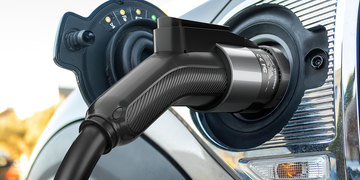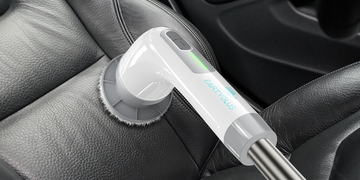Can My Home Support an EV Charger? Of course you can, buy the Telgeoot Level 2 Home Car Charger, it’s very easy to install. Telgeoot EV Charger stations has been equipped with multiple safety protections, Over Voltage protection, Overload protection, Short Circuit protection, Ground protection, Earth Leakage protection. This ev charging station unit can operate in environments of -30℃ to 55℃ (-22°F to 131°F). The connector operating life is up to 10000 times. Allows to adjust charging current range from 1 to 48A, level 2 EV 240V 11kw home charger can work 7X faster than a normal Level 1 chargers, Say goodbye to long charging times.
The IP65 TYPE 4 waterproof case and solid 20ft cable, make it suitable for indoor and outdoor application. Rain or shine, our charging piles are built to keep your charging experience seamless. The moisture-proof technology guarantees that water won't interfere with the charging process, providing peace of mind in any weather condition. Additionally, our cold-proof feature ensures that our charging piles operate efficiently, even in frigid temperatures.
For many EV owners, the convenience of charging at home is a significant advantage. However, before making the decision to install an electric vehicle charger at home, it's crucial to assess whether your residence can support the additional electrical load. In this article, we will explore the key considerations to determine if your home is ready for an EV charger.
Electrical Panel and Capacity:
The first step in evaluating your home's readiness for an EV charger is to examine your electrical panel. The panel is the hub of your home's electrical system, distributing power to different circuits. Determine the available amperage in your panel, as EV chargers typically require a dedicated circuit with a higher amperage, often 40 amps or more.
If your electrical panel has sufficient capacity, you may be able to add a dedicated circuit for the EV charger. However, if the panel is already near its limit, an upgrade might be necessary to support the additional load. Consult with a licensed electrician to assess the feasibility of upgrading your panel to accommodate the EV charging requirements.

Wiring and Infrastructure:
Once the electrical panel is deemed capable, the next consideration is the wiring and infrastructure within your home. The wiring should be of the appropriate gauge and quality to handle the demands of an EV charger. Older homes may require rewiring to meet the necessary standards for electric vehicle charging.
Consider the location where the EV charger will be installed. Proximity to the electrical panel can minimize the length of wiring needed, reducing the chances of energy loss and potential issues. A garage is often a practical and safe location for an EV charging station.
Permitting and Local Regulations:
Before embarking on an EV charger installation, it's important to be aware of local permitting requirements and regulations. Different regions may have specific guidelines for electrical installations, and EV chargers often fall under these regulations due to their high-power nature. Obtain the necessary permits to ensure that your installation complies with local codes, ensuring both safety and legality.
Charger Compatibility:
Not all EV chargers are created equal, and compatibility with your specific electric vehicle is crucial. Before purchasing a charger, verify that it is compatible with your EV's make and model. Additionally, consider whether the charger has adjustable power settings, allowing you flexibility for future changes in your EV fleet.
Can My Home Support an EV Charger? Installing an EV charger at home is a significant step toward embracing sustainable transportation. However, ensuring that your home can support the additional electrical load is paramount. Conduct a thorough assessment of your electrical panel, wiring, and local regulations, consulting with professionals as needed. With careful planning, you can enjoy the convenience of charging your electric vehicle at home while contributing to a cleaner and greener future.





